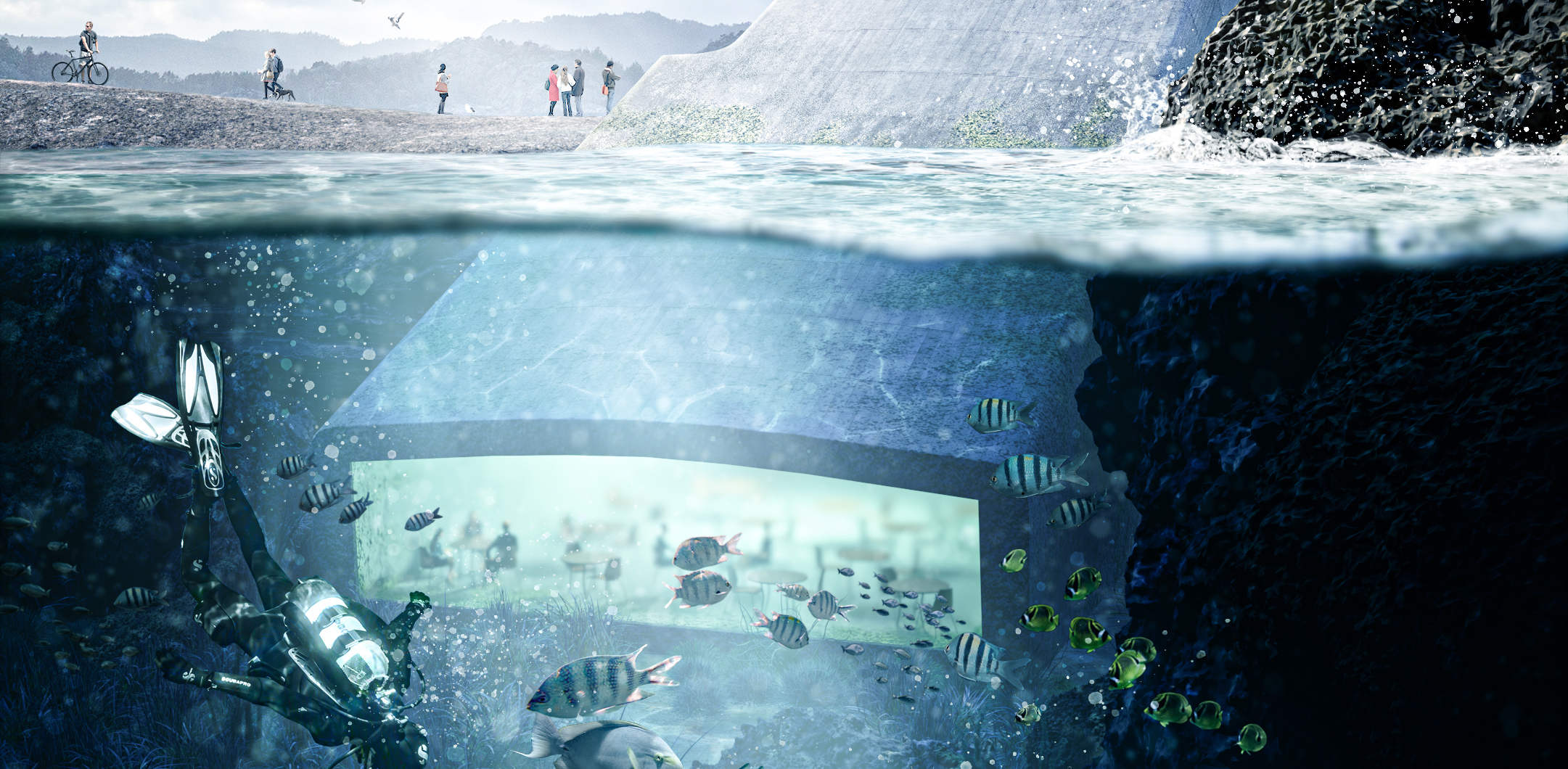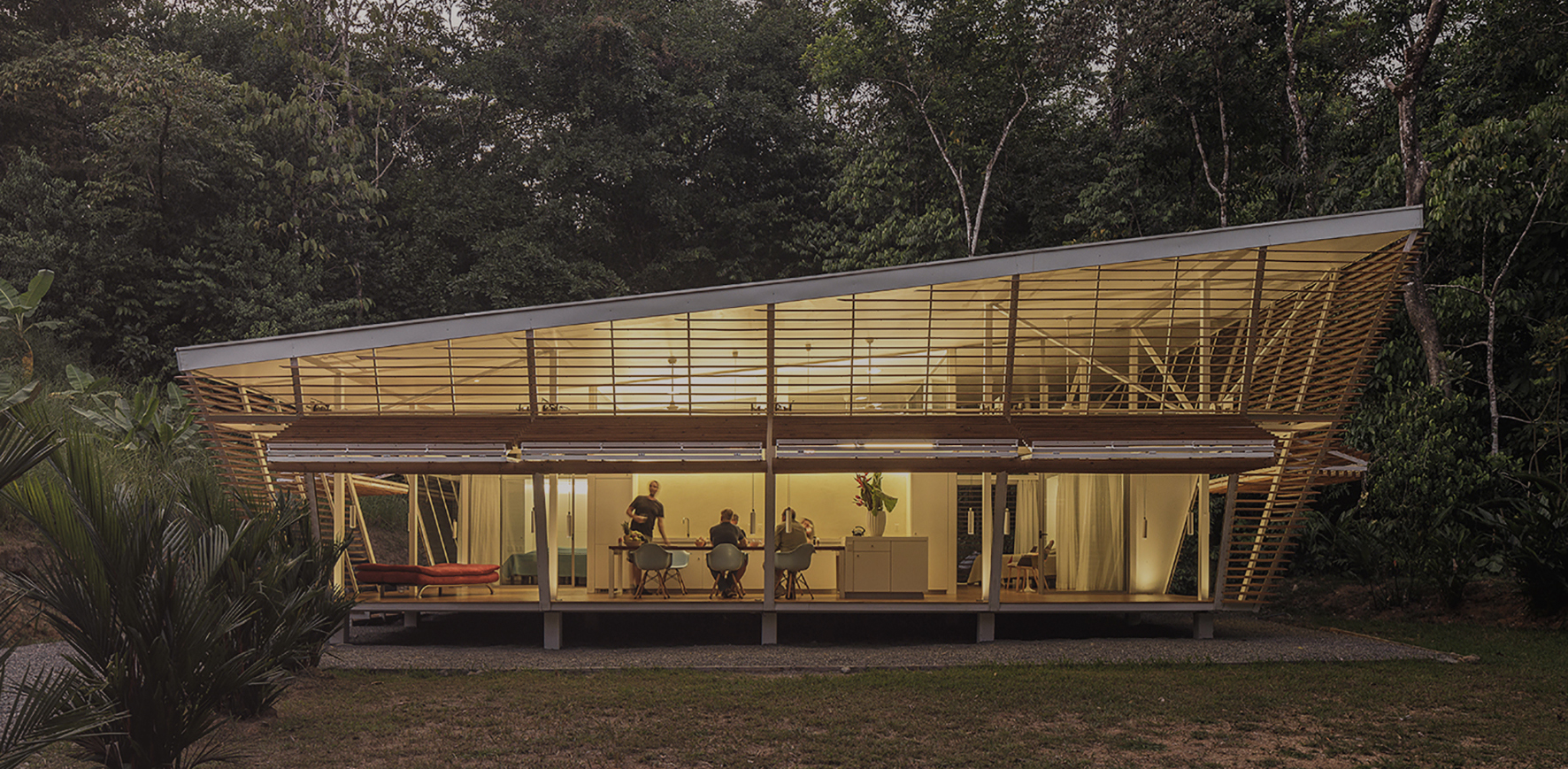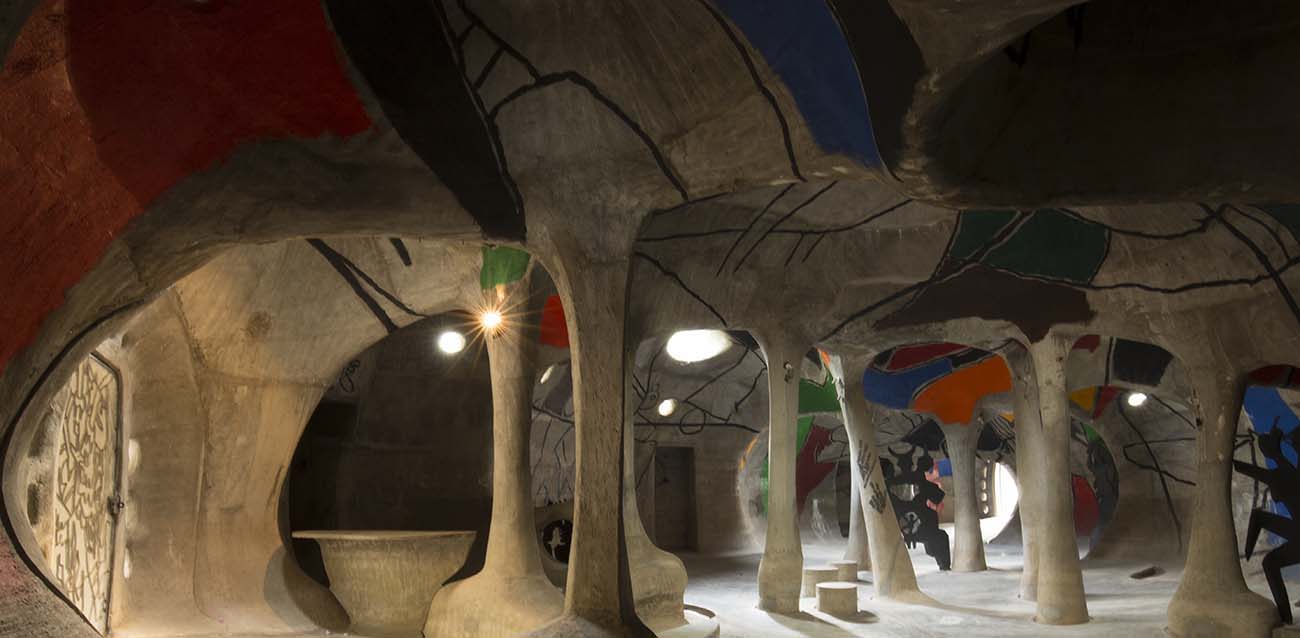Architizer’s newest print publication is available for pre-order! How to Visualize Architecture is an educational guide designed to help you master the craft of architectural storytelling and visual communication. Secure your copy today.
Architects have long used visual representation to develop ideas, explore the potential outcome of their designs, and communicate their schemes to clients and the public. Since the development of the two-point perspective back in the fifteenth century, architectural visualizations have appeared more and more like images taken from the real world rather than from an architect’s imagination. Rendering has come a long way from its early days of drawing and painting, and technological developments of the late 20th century have shifted the relationship between architects and visualization.
With 3D modeling and digital rendering at their fingertips, it is now easier than ever for architects to construct stories around architectural ideas, often evoking the emotions they might associate with the experience of an existing building. While there is a long history of architects sketching completed buildings and drawing inspiration from those representations, one significant difference today is that artists no longer need to travel to the buildings themselves to represent them.
Enter the One Rendering Challenge
As Architizer’s annual One Rendering Challenge kicks off its third season, we are looking back at some of the superb finalists from previous editions. While many entries visualize unbuilt designs, utopian cityscapes and machine-laden dystopias to communicate powerful conceptual ideas, others draw strength by reimagining well-known scenes that exist in our contemporary landscape. The following eleven renderings take famous buildings from around the world as their subject matter. Each artist masterfully crafted an emotive image that offers a new perspective on their chosen structure by using surreal, dreamlike atmospheres, subtle distortions, unusual vantage points, and more. A couple of the buildings dig back in the history of modern architecture, while many more draw on recently completed but instant classics.
How many of the following buildings (and their architects) can you identify solely by viewing the following renderings? Grab a pen and paper, note down your answers and then click on the link at the foot of the page to discover how much of an expert you really are…
1.
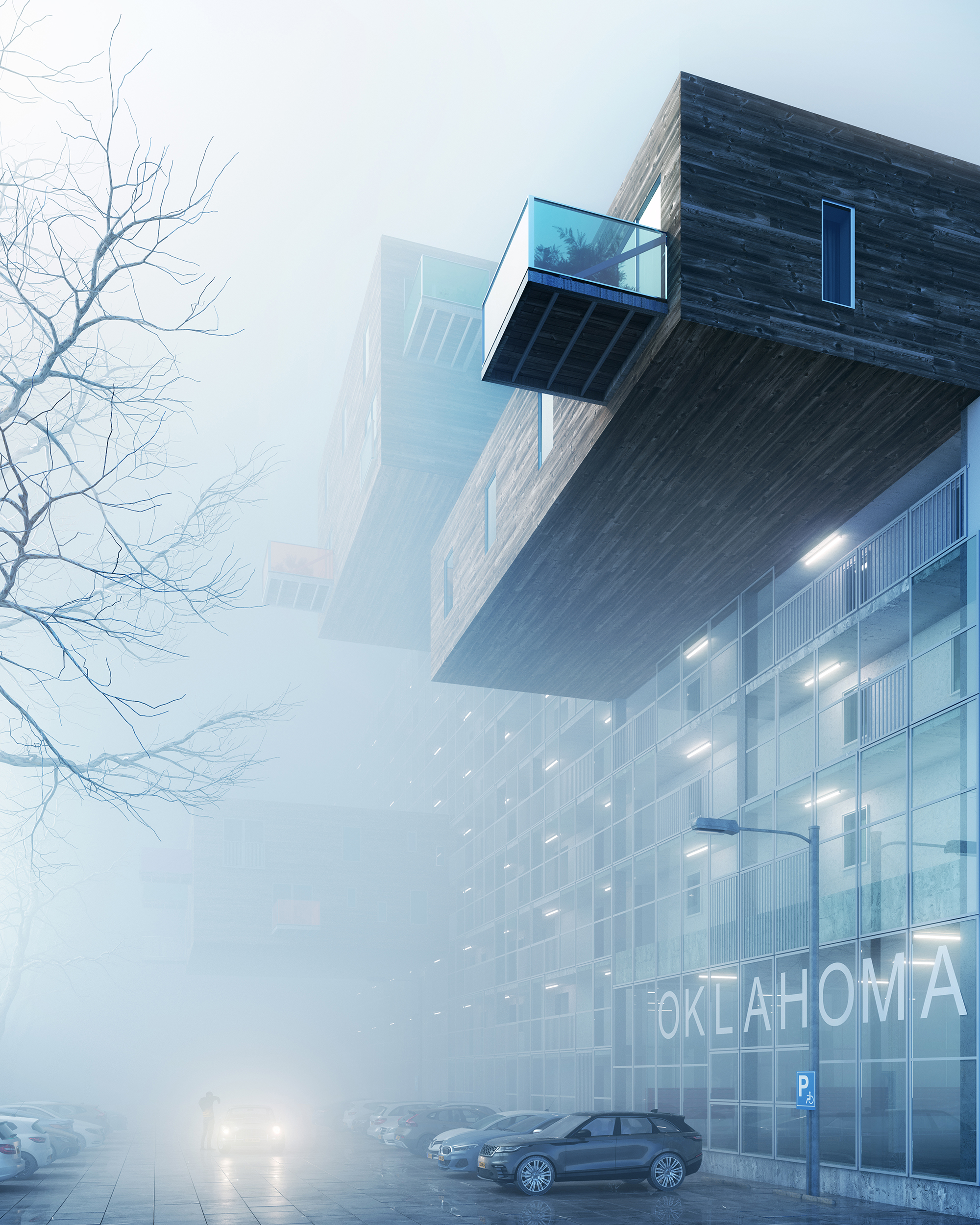
Rendering by Massimiliano Marzoli
The artist says, “I decided to portray this building with a foggy atmosphere, in a wintry morning. I think this mood was perfect to help me enhancing the beautiful colored balconies and the jutting wooden blocks that make this building so unique.”
2.
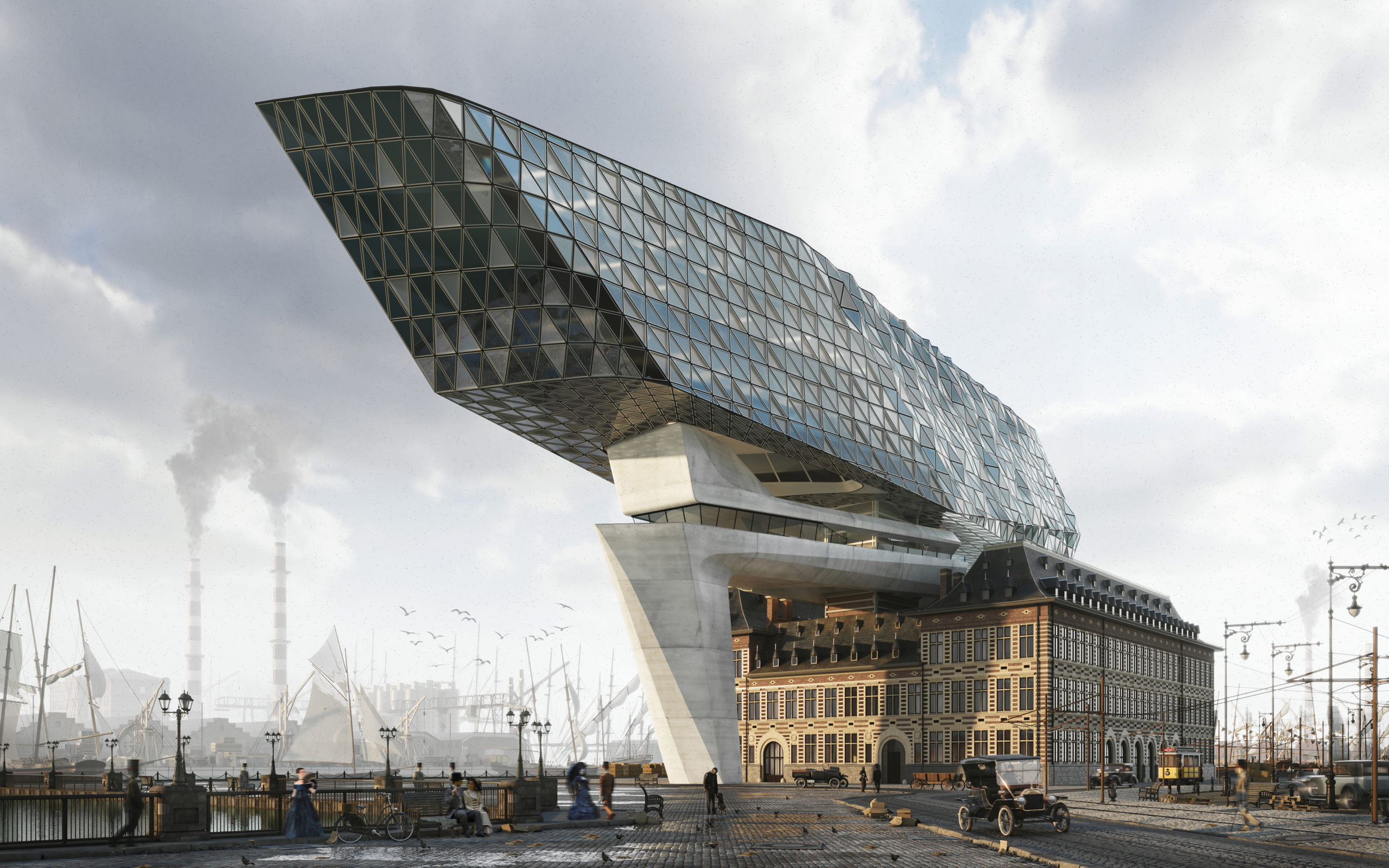
Rendering by Tigran Hakobyan
“Its an interesting and challenging thing: to tell a story in one still image,” muses the artist. The architectural subject matter “has amazing contrast view of an old building and a new futuristic shape. It perfectly demonstrates the connection between centuries. Thats’ why it was chosen to show time traveling.”
3.
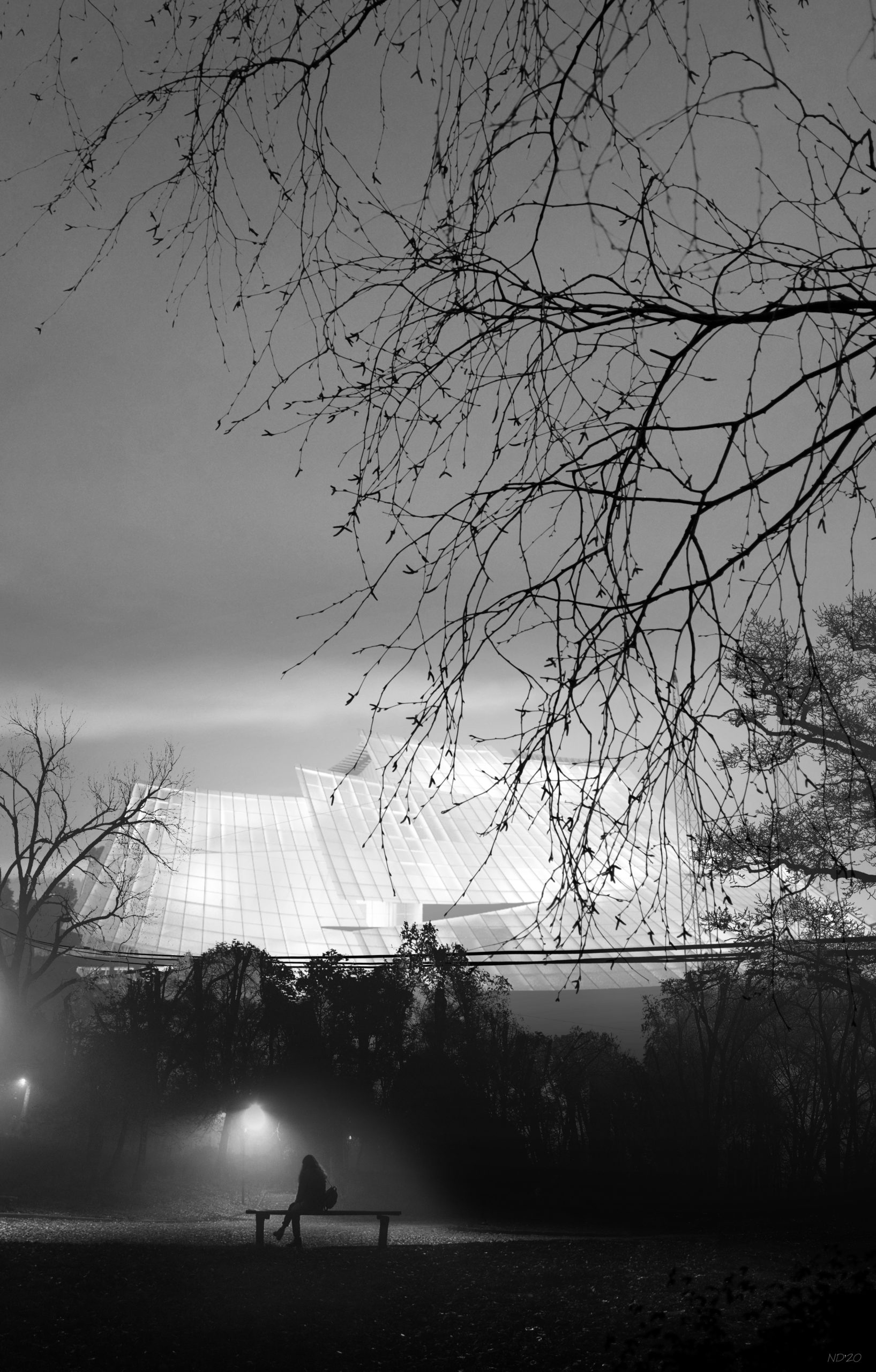
Rendering by Nicolas Dagna
Drawing on the delicate glass panels that define the original building, the artist “uses a very still and calm setup that allows these sails to shine in contrast with the darkness that surrounds them. A dark and moody park frames the iconic architecture in a peaceful and honest way. Human scale is portrayed in a delicate way against the magnitude of the architecture. Silence is the main trigger for this image.”
4.
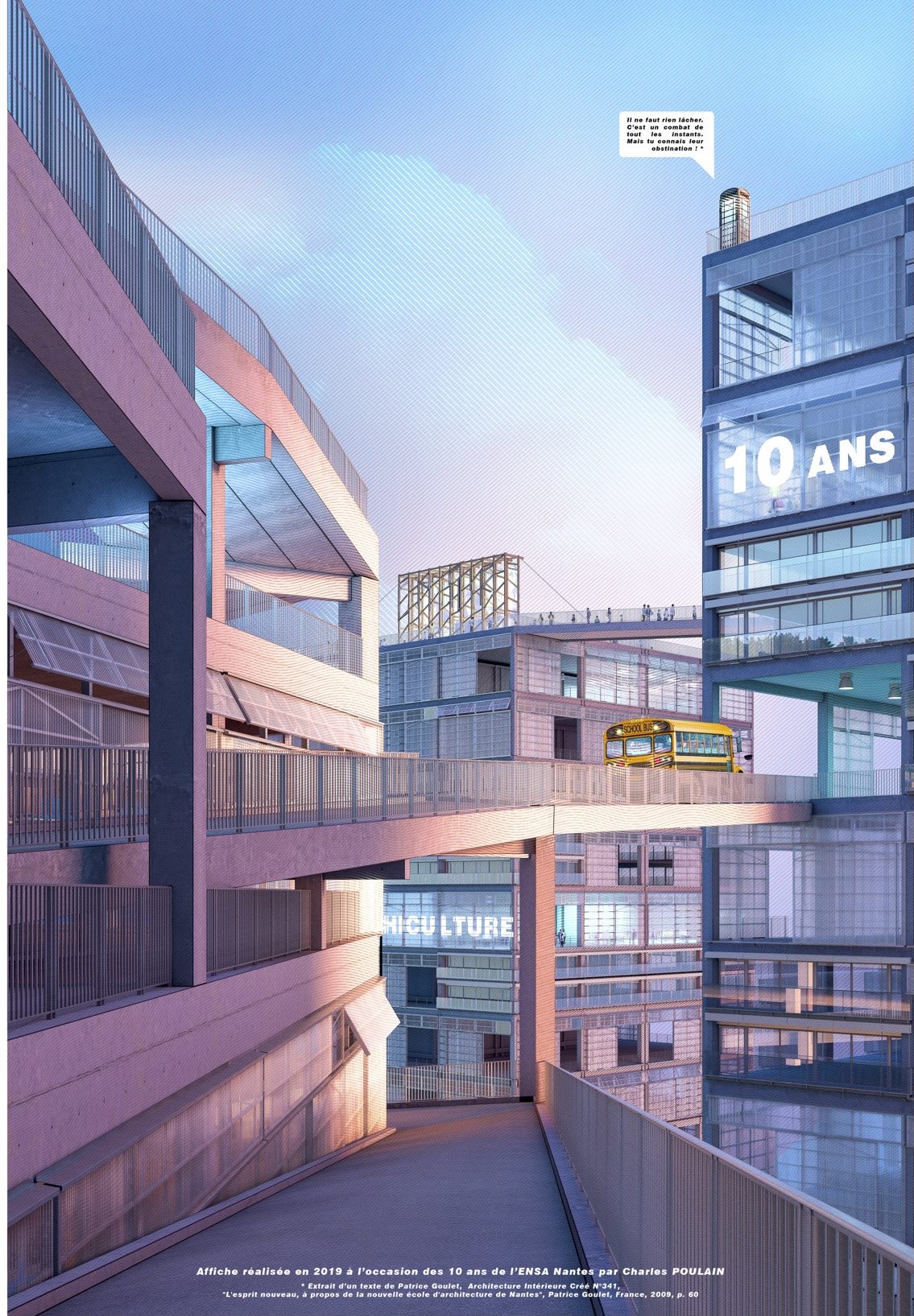
Rendering by by Charles Poulain
“This picture represents an utopian city,” constructing it with references to a well-known building that the artist was very familiar with. “The eye travels through the image following the ramp. There are several elements that refer to the history of the [building]: some artworks that took place on its roof and the texts, that remind “Archiculture”, an event which took place every year.”
5.
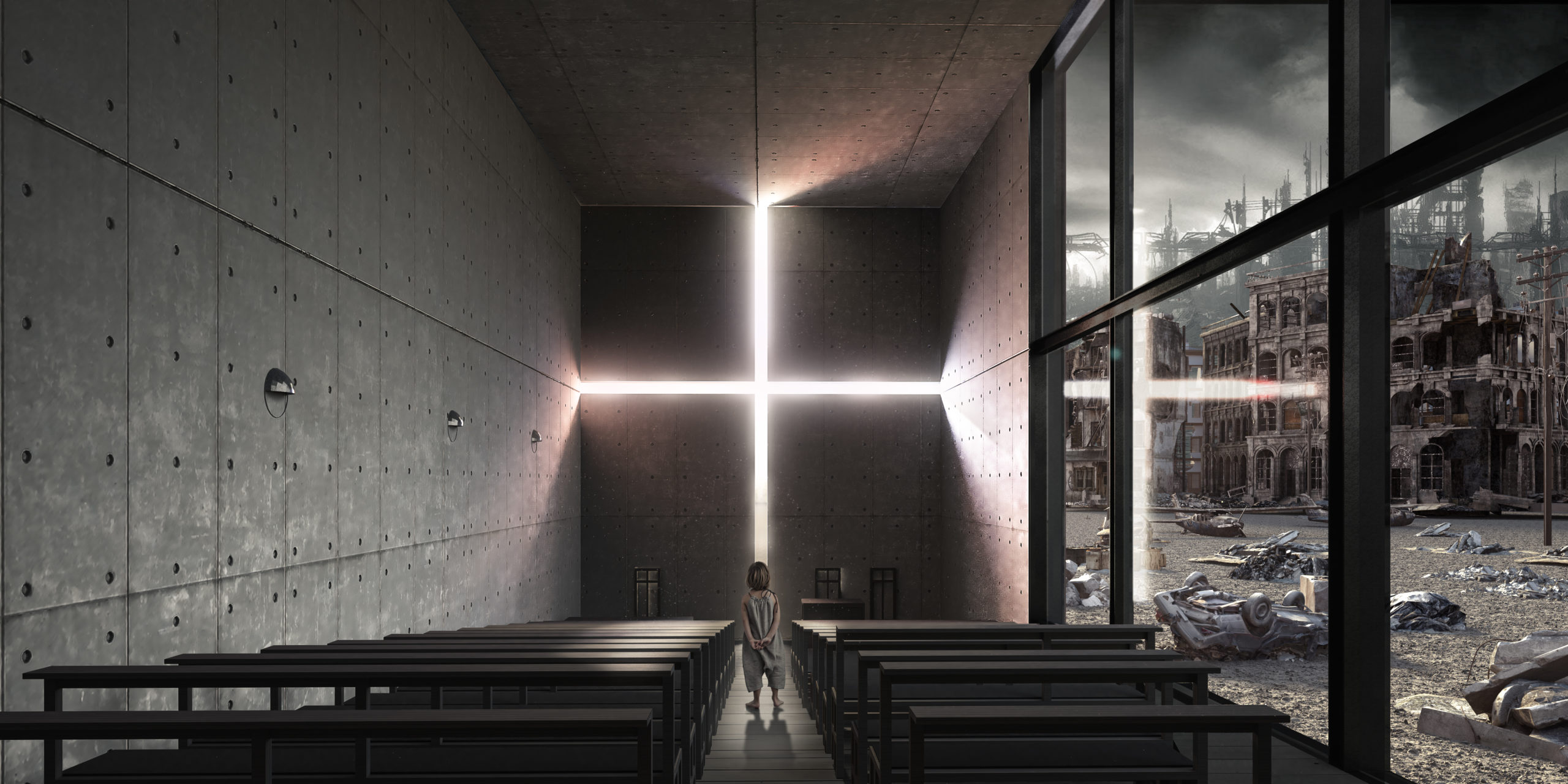
Rendering by by Vanya Dimitrova
“This project reminds us of that one sacred place and state of mind where we find solace in,” the artist says in reference to the original project. “Hope is there, as long as we remember to search for the light.”
6.
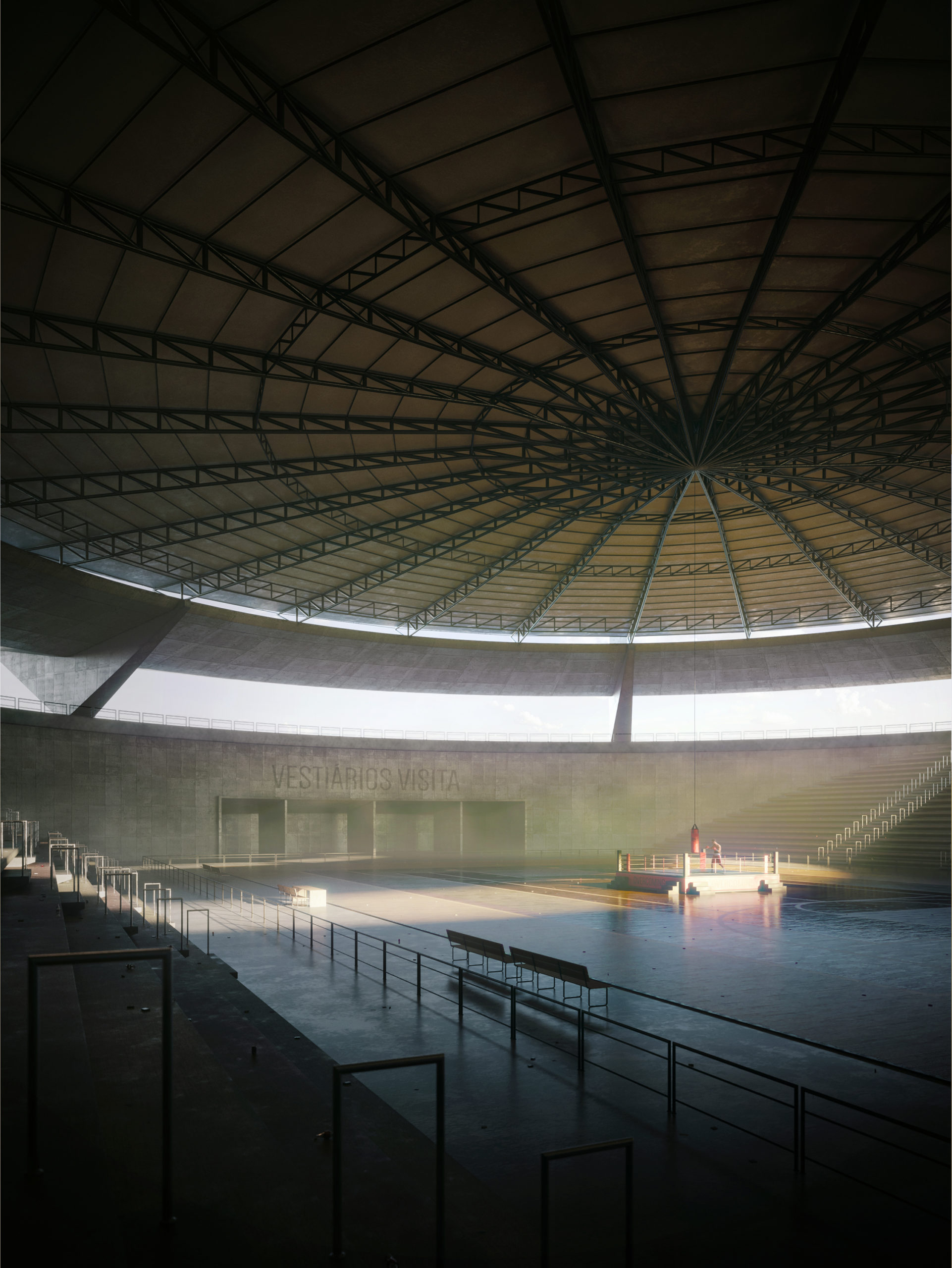
Rendering by Lautaro Vogel
“I took the liberty of tweaking the scale a bit to enhance the feeling of monumentality,” the artist explains. “We are used to seeing this kind of huge spaces full of lights, colours and people, but for this project I wanted to achieve a more emotion-evoking image by using a monochromatic(ish) colour-palette, enhancing the contrast in scales by having just one character, and playing with sunlight to guide the viewer’s attention.”
7.
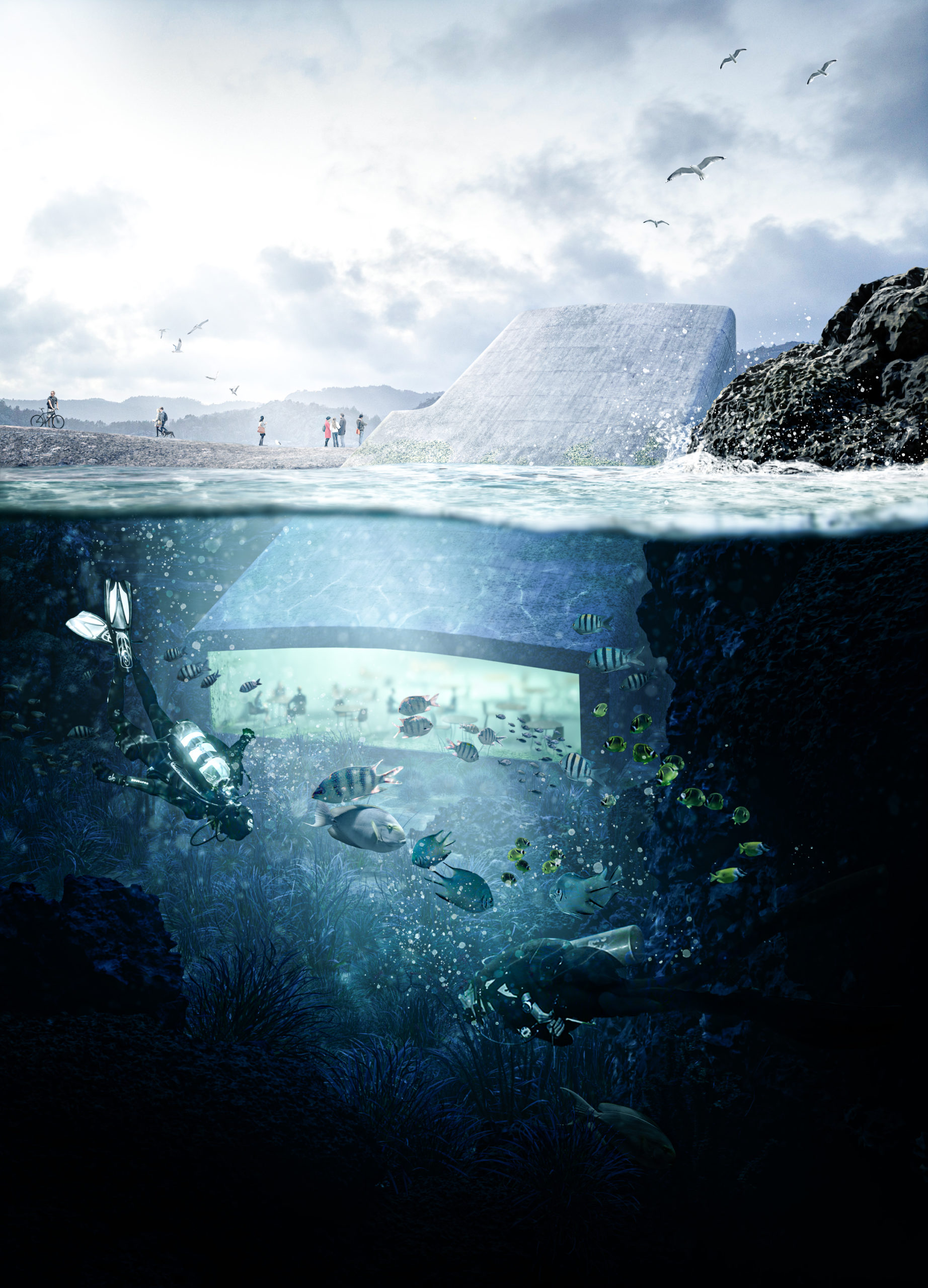
Rendering by Lorenzo D’Alessandro
“Something happened Under the Sea of the North’s waters. A new kind of reef appeared, the waves strike upon it, the wind besieges it and the sealife is building on it their new homes,” describes the artist. “What nature does in thousands of years, a group of human beings did in a few, defining a new part of the landscape, something between human and nature, an artificial window upon the mysterious and deep water of the north. What’s better than dive over there?”
8.
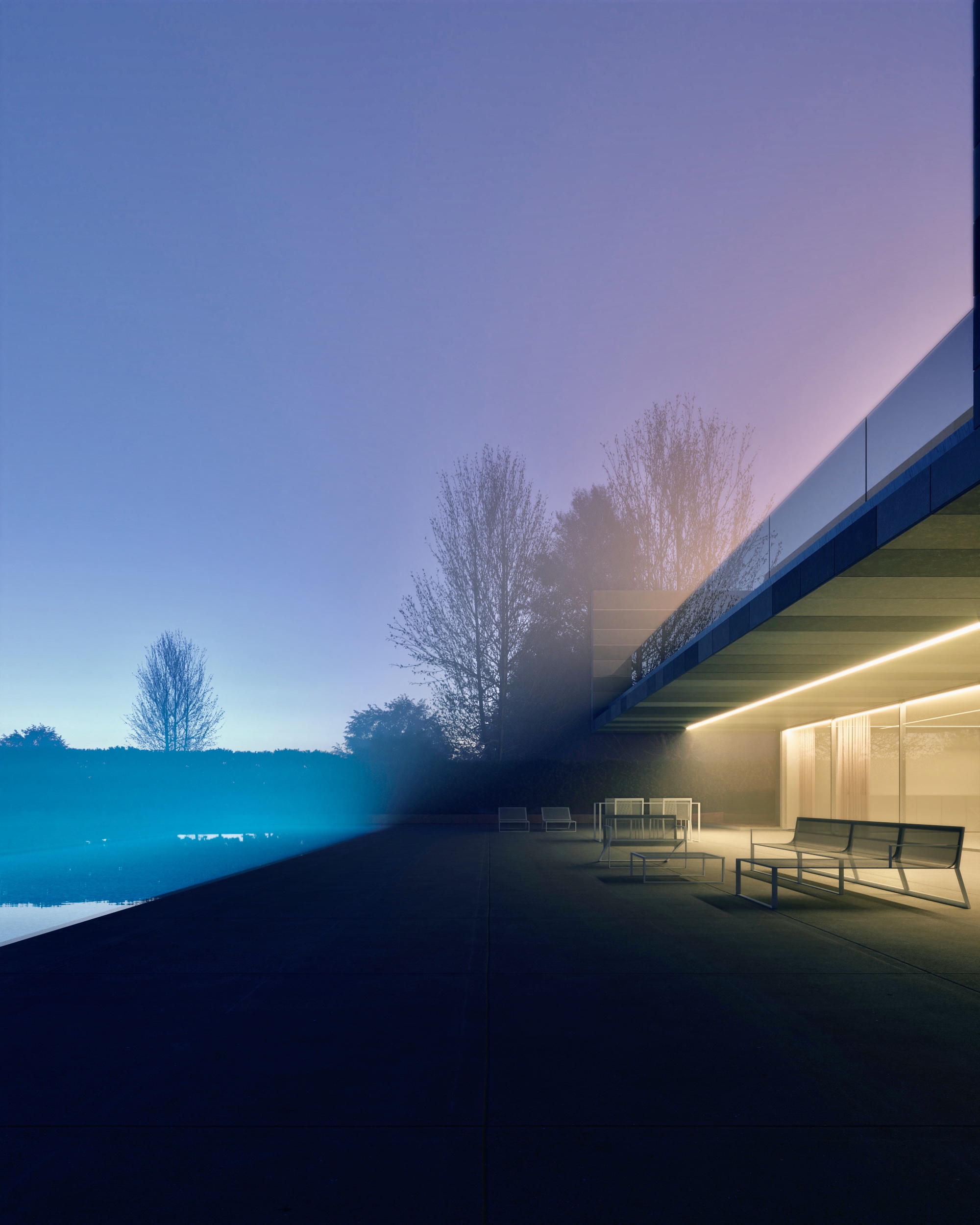
Rendering by by Ander Alencar
9.
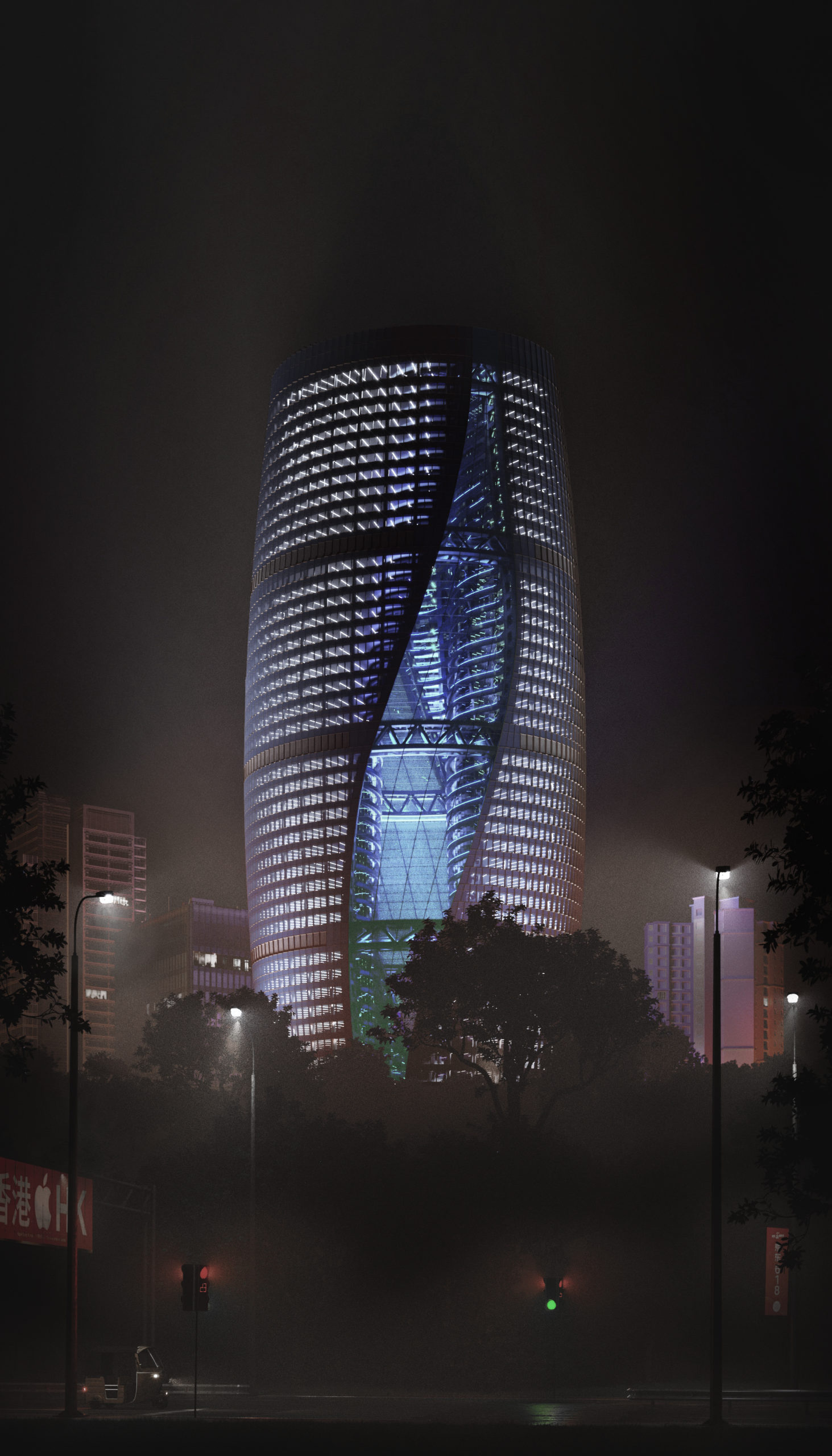
Rendering by by Sergey Golubev
“Before modelling I checked professional photos on the web and tried to make the final look different from them. This is an office building and we know lots of office buildings night renderings in busy streets with smudged out car lights. But I focused on a calm night atmosphere,” the artist describes. “The viewpoint is far from the edifice and the beholder can barely hear the noise of the city through the wet heavy air.”
10.
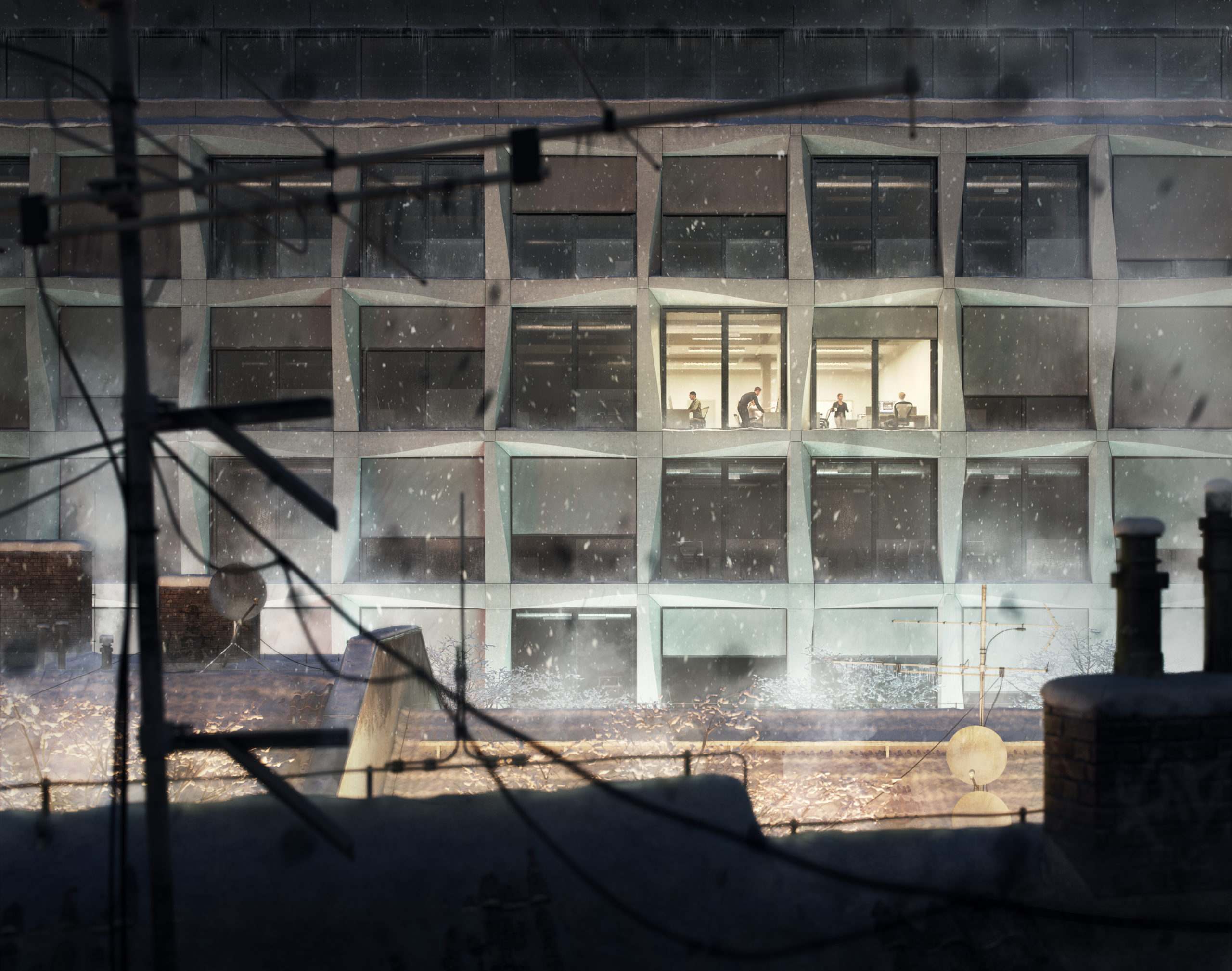
Rendering by Erik Peter
“While we are working hard and having fun, there is no time to notice how cold is outside,” the artist explains. “How steam and smoke from traffic down below and chimneys is rising above the roofs and how the snow flakes are flying about. There will be enough time for all that, on our way home… Once we meet the deadline.”
11.
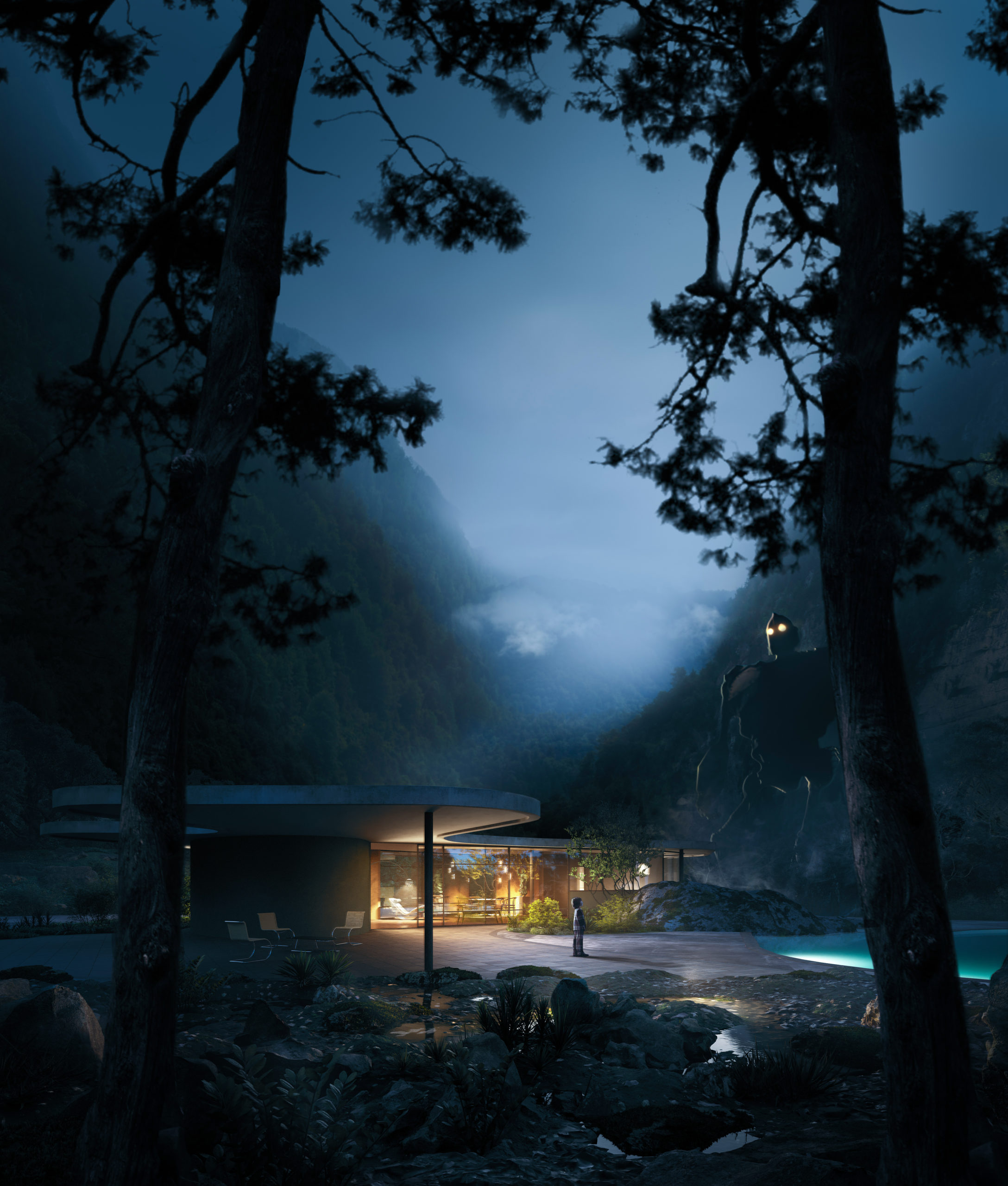
Rendering by by phil hunter
“This image is a canvas for some recurring dreams I have been having recently,” says the artist. “The environment is the dreamscape, featuring themes from my childhood, from my studies and my professional career. Similar to my dreams, the mist is entering the proximity of the house and figures, partially emerging and then receding into the haze.”
Share this with your fellow colleagues and students to see how your architectural knowledge compares! Then, when you’re ready, you can check out the answers here. (No cheating!)
Architizer’s newest print publication is available for pre-order! How to Visualize Architecture is an educational guide designed to help you master the craft of architectural storytelling and visual communication. Secure your copy today.
